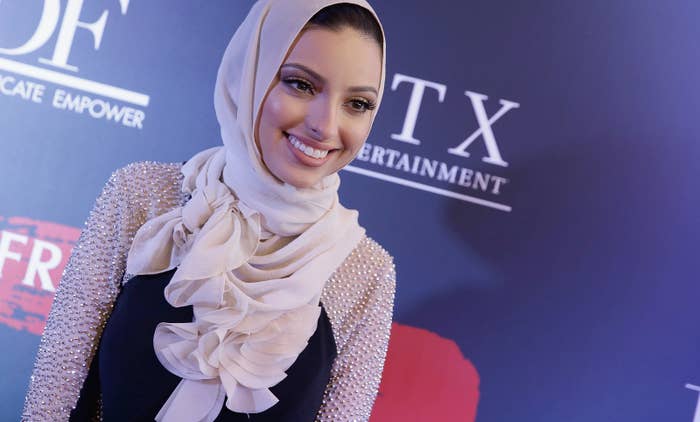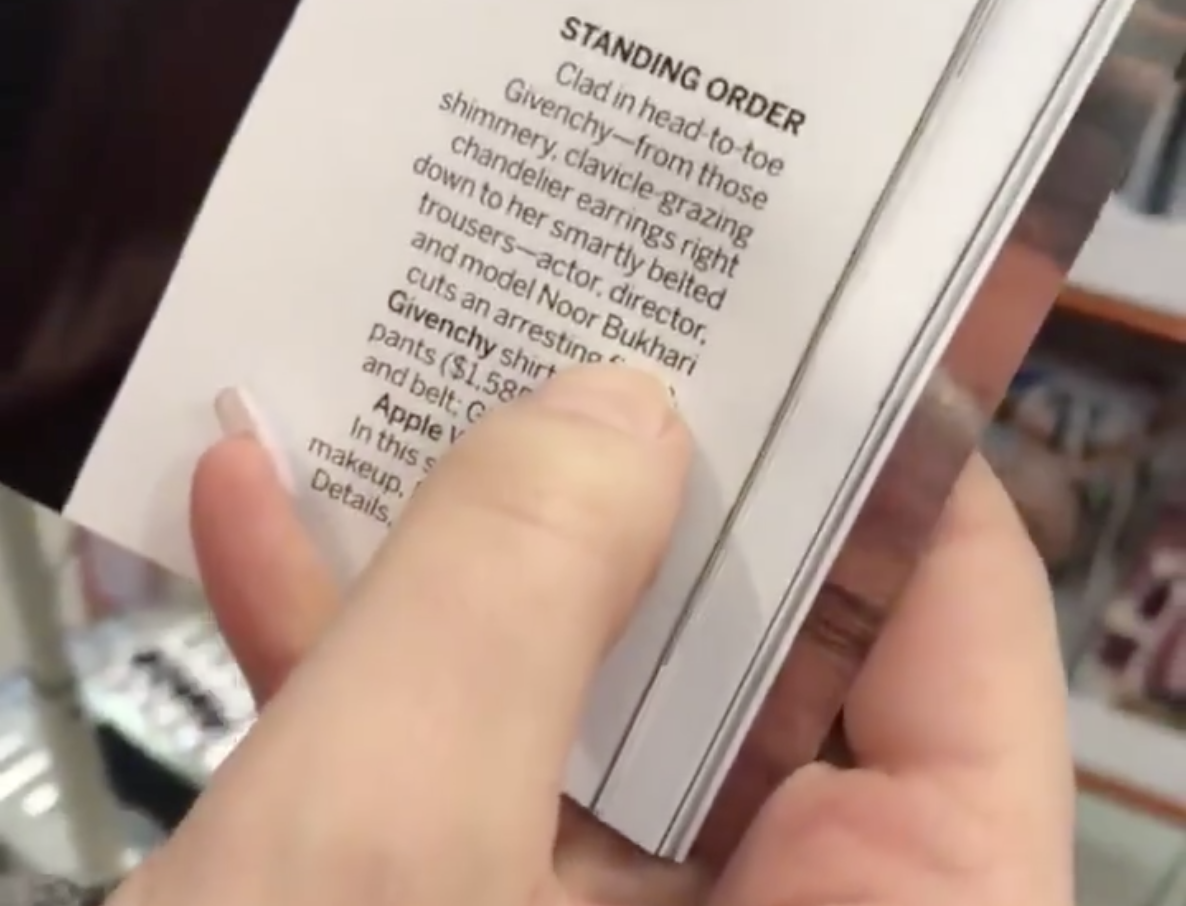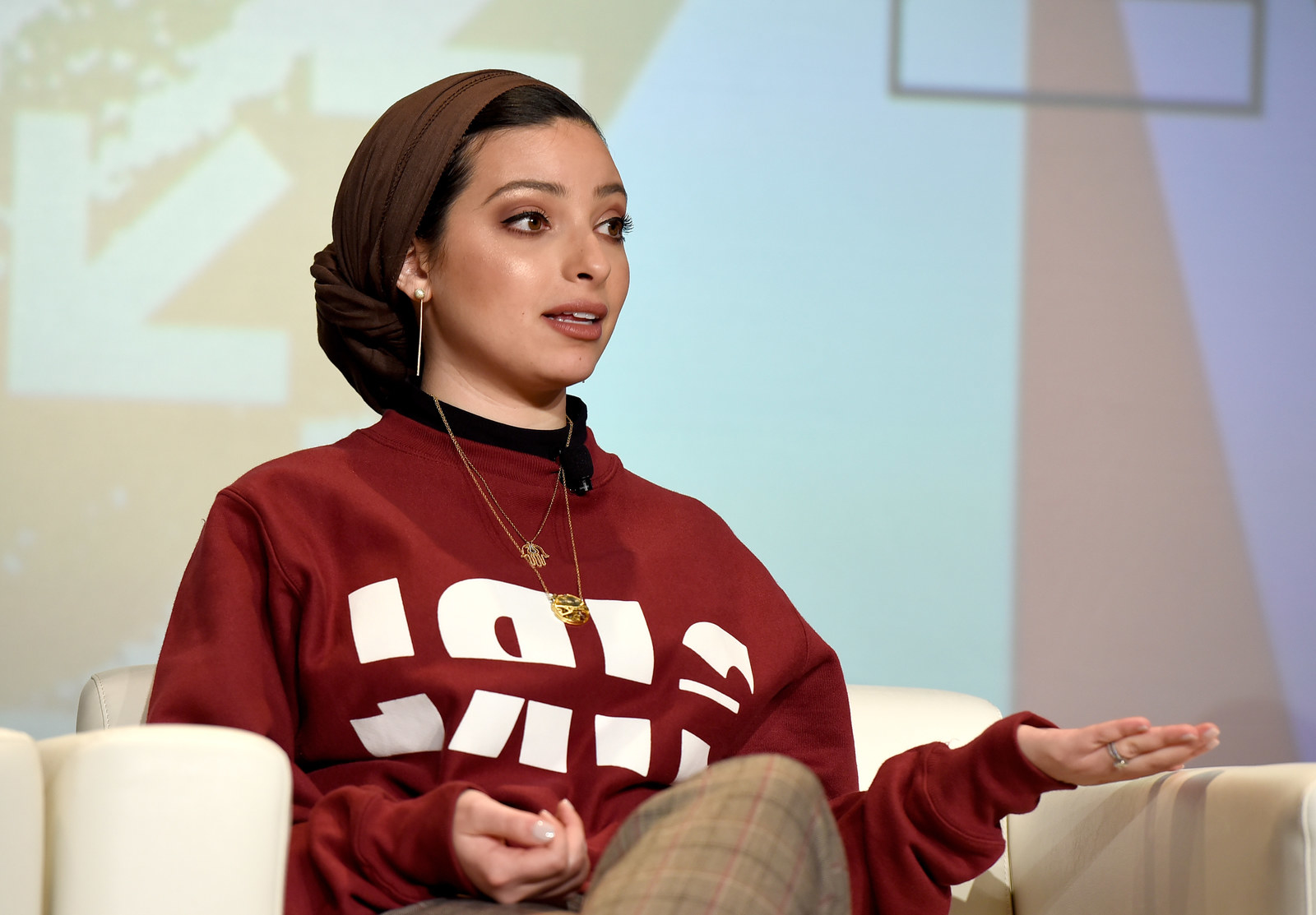
So if Noor Tagouri isn’t a name you’re familiar with, you really should get to know her because she’s epic. She’s an accomplished journalist and activist, and made waves when she was featured in Playboy wearing her hijab. Yes, you read that right.
The 25-year-old, who recently moved to New York, is featured in the February issue of Vogue, but there’s one major problem.
I’m SO heartbroken and devastated. Like my heart actually hurts. I’ve been waiting to make this announcement for MONTHS. One of my DREAMS of being featured in American @VogueMagazine came true!!
In the print edition, Tagouri is incorrectly identified as Noor Bukhari, a Pakistani actor, director, and model.

And the awkward and heartbreaking moment when she realized the error was captured on camera.
We finally found the issue in JFK airport. I hadn’t seen the photo or the text. Adam wanted to film my reaction to seeing this for the first time. But, as you can see in the video, I was misidentified as a Pakistani actress named Noor Bukhari. @voguemagazine
“I mean I was absolutely devastated. I found out as my husband was taking a video of my first reaction seeing this,” Tagouri told BuzzFeed News. “I was more upset about this always happening to Muslim women more than it happening to me, specifically. I felt defeated. But I know we can learn, build, and grow from this. I am constantly talking about misrepresentation and the dangers of misidentification. It isn’t always easy — but this is why we keep fighting.”
The initial invitation to be featured in the magazine was something the trailblazer told BuzzFeed News was “an absolute dream come true.”

“Early November. I got the email the day I moved to New York. The view from my new apartment is literally the WTC where Condé Nast is — and it was fate. I was over the moon, what a way to kick off living in NYC,” she said.
She added: “I’ve never seen a Muslim woman in hijab in the pages of Vogue. I was so proud and couldn’t wait for my younger sisters to see this. I’ve been reading Vogue since I was little, and I did this for my 12-year-old self who never saw herself in pages like these.”
But the moment has been strained by the error. And it wouldn’t be the first time the Muslim American has been misidentified and had her image misappropriated by the publishing house.
“Just last month Brides used my wedding photos for a horribly written and misrepresentative piece on Muslim wedding traditions — written by two white women. And they had to retract it and apologize and the works, but I found out about that article a year late because my friend found it online,” Tagouri said.
The activist, who is the voice behind Sold in America, an investigative documentary about the US sex trade, has also been misidentified as the wife of Orlando nightclub mass shooter Omar Mateen.
“I’ve been misidentified several times in publications to the point where it put my life in danger,” she said. “Outlets were using my photo to identify Noor Salman, the Pulse nightclub shooter’s wife — a mistake that is disappointing but not surprising since Noor Salman doesn’t wear the hijab, and I do, so it’s careless to think I look ‘more Muslim’ for the negative narrative being spewed.”
In an effort to keep the same mistake from repeating, Tagouri’s team attempted to have a final look at the Vogue feature last week.
We even sent this email to @voguemagazine last week bc we this isn’t the first time I’ve been misidentified in publications. Got no response.
“Mistakes like this happen because of carelessness, no fact checking, and a lack of understanding of other communities,” Tagouri said. “I totally understand this was a mistake, but it’s so devastating because it’s a mistake that further drives the understanding that Muslim women in America are constantly misrepresented and misidentified.
“There are 3.4 million Muslims in America — behind that number are actual human beings, with stories, names, identities, experiences. We aren’t all the same. That goes for every marginalized group. How to avoid errors like this? Hire more people of color. And fact check.”
The magazine issued an apology online and acknowledged that “there is a larger issue of misidentification in media — especially among nonwhite subjects.”
The blunder was described as “painful misstep,” with Vogue promising to be “more thoughtful and careful” moving forward.
